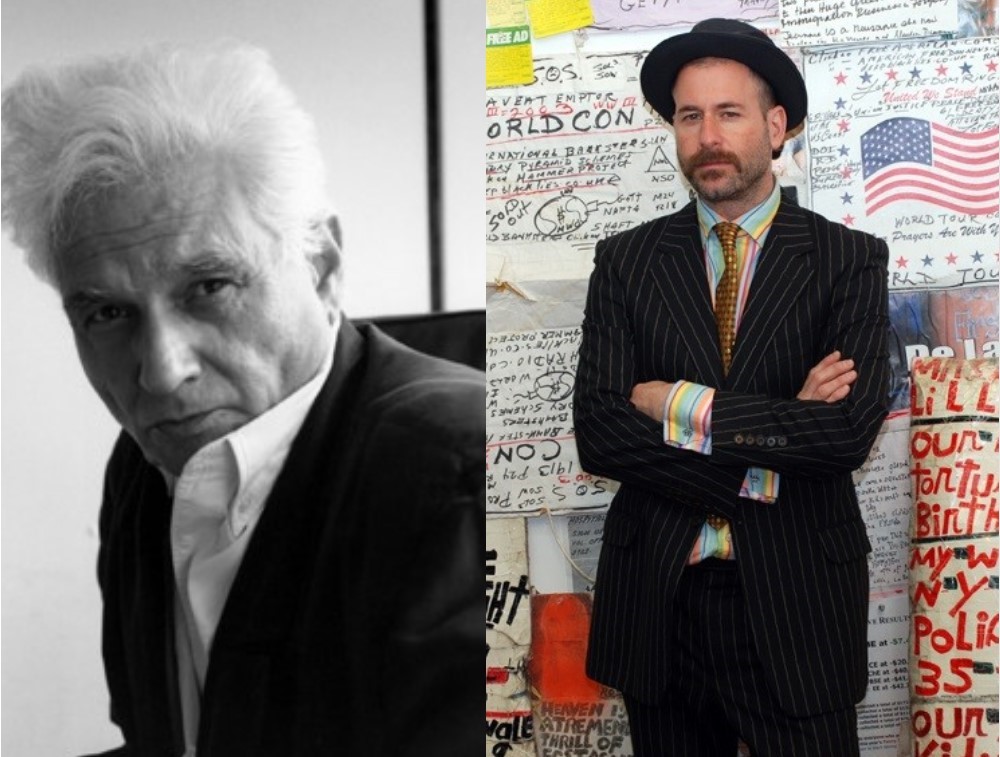
Jacques Derrida, Jean Baudrillard, Roland Barthes… to my freshman ears, the names of these French theorists sounded like passwords to an occult world of strange and forbidding ideas. I started college in the mid-90s, when English departments gleefully claimed poststructuralism as their birthright. Academic campaigns against the fuzzy logic of these thinkers had not yet gathered much steam, though conservative culture warriors were already on the warpath against postmodernism. Very shortly after my introduction to French poststructuralist thought, analytical positivists launched formidable campaigns to banish critical theory to the margins.
The backlash against obscurantist theory made a good case, with public shamings like the “Sokal Hoax” and Philosophy and Literature’s Bad Writing Contest. Such displays made the work of many European philosophers and their adherents seem indeed—as Noam Chomsky said of Derrida, Slavoj Žižek, and Jacques Lacan—like so much vacuous “posturing.” But as potent as these critiques may be, I’ve never cared much for them; they seem to miss the point of more creative kinds of theory, which is not, I think (as philosophy professor Eric Schwitzgebel alleges) “intellectual authoritarianism and cowardice,” but instead an exploratory attempt to expand the rigid boundaries of language and cognition, and to enact the meanderings of discursive thought in prose that captures its “errantry” (to take a term from Martiniquan poet, novelist, and academic Edouard Glissant.)
In any case, the debate was not new at all, but only a later iteration of the old Continental/Analytic divide that has long pitted exponents of Anglophone clarity against the sometimes awkward prose of thinkers like Kant and Hegel. And I happen to think that Kant, Hegel, and, yes, even later Continentals like Derrida—despite the deliberate obscurity of their writing—are interesting thinkers who deserve to be read. They even deserve to be sung, badly, by poets—namely by conceptual poet Kenneth Goldsmith, who is also founding editor of Ubuweb, senior editor of PennSound, and onetime host of a radio show on gloriously weird, free-form radio station WFMU.
With his natty sense of style and serious appreciation for absurdity, Goldsmith has sung to listeners the work of Walter Benjamin, Ludwig Wittgenstein, and Sigmund Freud; he has given us an avant-garde musical rendition of Harry Potter; and he has turned selections of Theodor Adorno’s grim Minima Moralia into 80s hardcore punk. Now, we bring you more of Goldsmith’s musical interventions: his goofball singing of Derrida over an icy minimalist composition by Anton Webern (top); of Baudrillard over a lounge-pop instrumental by Francis Lai (middle); and of Roland Barthes over the Allman Brothers (above).
As an added bonus, if you can call it that, hear Goldsmith warble Marxist theorist Frederic Jameson over Coltrane, just above. Do these ridiculous musical exercises make these thinkers any easier to digest? I doubt it. But they do seem to say to the many haters of critical theory and postmodern French philosophy, “hey, lighten up, will ya?”
Related Content:
Noam Chomsky Slams Žižek and Lacan: Empty ‘Posturing’
John Searle on Foucault and the Obscurantism in French Philosophy
30 Minutes of Harry Potter Sung in an Avant-Garde Fashion by UbuWeb’s Kenneth Goldsmith
Theodor Adorno’s Critical Theory Text Minima Moralia Sung as Hardcore Punk Songs
Josh Jones is a writer and musician based in Durham, NC. Follow him at @jdmagness


Utter rubbish. Goldsmith hasn’t got the voice to match his musicians, whether pure or postmodernly ironic. Change the vocalist!